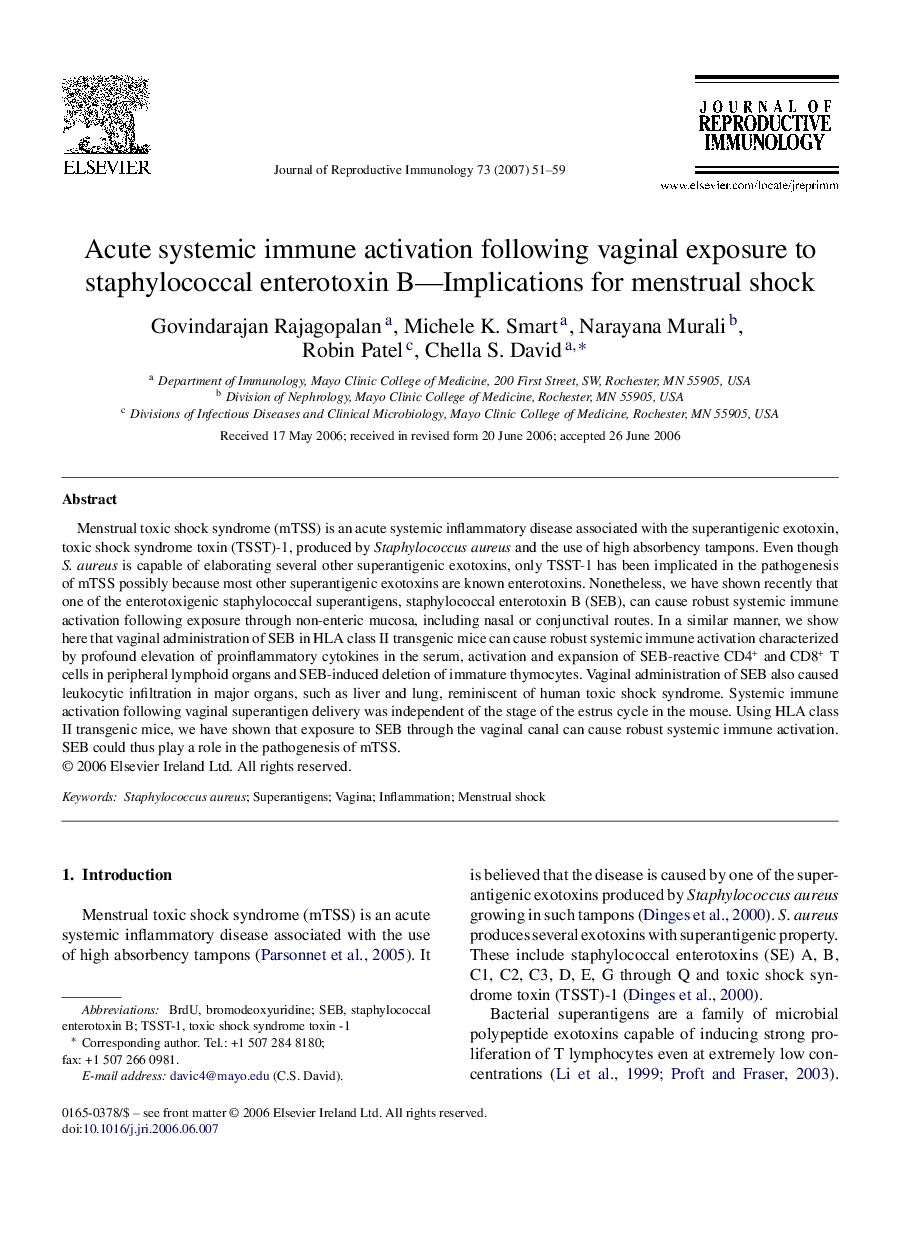| Article ID | Journal | Published Year | Pages | File Type |
|---|---|---|---|---|
| 3965267 | Journal of Reproductive Immunology | 2007 | 9 Pages |
Menstrual toxic shock syndrome (mTSS) is an acute systemic inflammatory disease associated with the superantigenic exotoxin, toxic shock syndrome toxin (TSST)-1, produced by Staphylococcus aureus and the use of high absorbency tampons. Even though S. aureus is capable of elaborating several other superantigenic exotoxins, only TSST-1 has been implicated in the pathogenesis of mTSS possibly because most other superantigenic exotoxins are known enterotoxins. Nonetheless, we have shown recently that one of the enterotoxigenic staphylococcal superantigens, staphylococcal enterotoxin B (SEB), can cause robust systemic immune activation following exposure through non-enteric mucosa, including nasal or conjunctival routes. In a similar manner, we show here that vaginal administration of SEB in HLA class II transgenic mice can cause robust systemic immune activation characterized by profound elevation of proinflammatory cytokines in the serum, activation and expansion of SEB-reactive CD4+ and CD8+ T cells in peripheral lymphoid organs and SEB-induced deletion of immature thymocytes. Vaginal administration of SEB also caused leukocytic infiltration in major organs, such as liver and lung, reminiscent of human toxic shock syndrome. Systemic immune activation following vaginal superantigen delivery was independent of the stage of the estrus cycle in the mouse. Using HLA class II transgenic mice, we have shown that exposure to SEB through the vaginal canal can cause robust systemic immune activation. SEB could thus play a role in the pathogenesis of mTSS.
